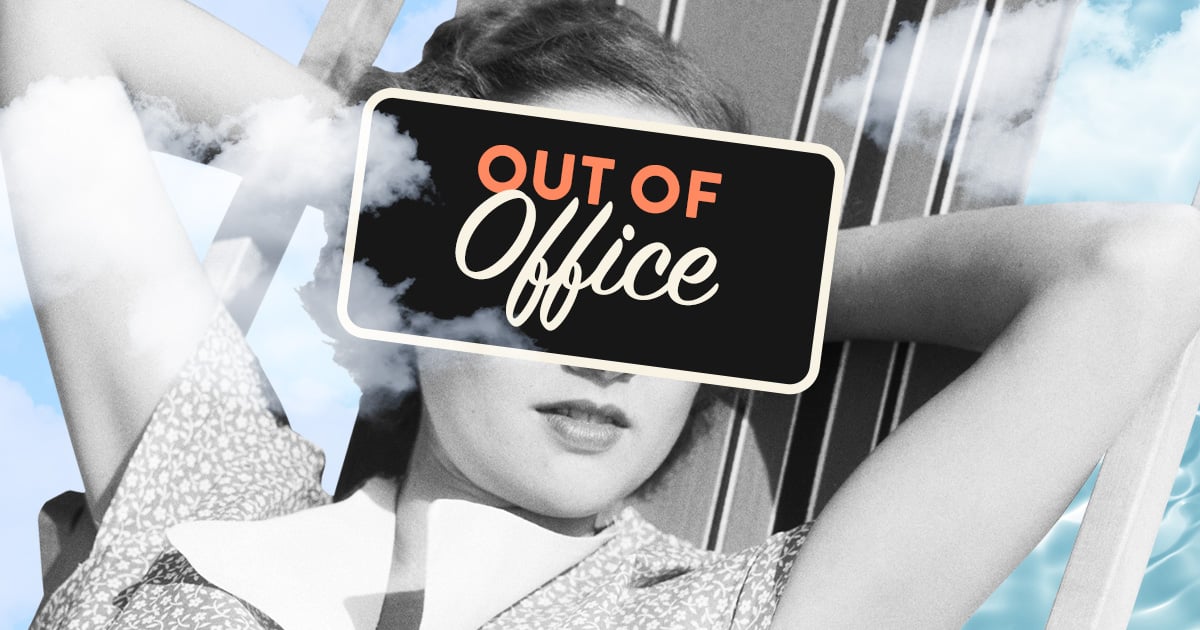It’s no secret that we live in a hyper-structured world.
Productivity is worshiped, schedules are carefully crafted though usually overbooked, and free time is seen as a luxury, rather than a necessity. But here’s the deal: you’re more than your productivity, and sometimes, you just need to dillydally.
More often than not, dillydallying is seen in a negative light, describing an otherwise waste of time due to indecision or hesitation. But in a recent viral TikTok, content creator Dasia Smith (@sweirdest) is changing the narrative, encouraging others to get outside and literally dillydally.
“As a student who also works a very demanding full-time job, dillydallying is a necessity for me, because it’s about prioritizing myself and taking a breather,” the 26-year-old tells PS. “With everything going on in the world, sometimes it’s OK to do nothing structured or serious and just take time off.”
And she’s right. There is a lot going on in the world, and, honestly, in this economy, we could all use a little levity and some aimless wandering. In fact, PS endorses intentional dillydallying so much, we’d even venture to say it’s the new “hot girl walk.” So, dear reader, get in, we’re going dillydallying.
Experts Featured in This Article:
Maddison Rotner, CPT, is a certified personal trainer and SOULCYCLE instructor.
Kiana Shelton, LCSW, is a licensed clinical social worker with Mindpath Health.
Dillydallying, Explained
As you might imagine, there’s no hard and fast definition for dillydallying. Instead, it’s about taking intentional time for yourself to chill out, decompress, explore, and see where the wind takes you. “It’s when you have no plans, you get out of your house, and you just take a walk,” Smith says. “Personally, my favorite way to dillydally is to stop at different coffee and pastry shops, or find a free, open park to just wander and have a good time.”
In other words, there is no right or wrong way to dillydally. “You have everything to achieve, and nothing to prove, so take the pressure off yourself,” says Maddison Rotner, CPT. “Instead of focusing on the end result or final destination, you get to enjoy the process and journey of dillydallying, because you’re actively choosing to go out and do something that positively impacts you.”
The Benefits of Dillydallying
At its core, dillydallying is a call for gentle movement, which activates the parasympathetic nervous system, shifting us into a calmer, more grounded state, says Kiana Shelton, LCSW. “As a mental health professional, I see dillydallying as an important part of holistic well-being, because it teaches us new ways to listen to our body and honor our need for slowness.”
And this need for slowness can do wonders for your mental health. More than anything, an undirected wander allows for mental decompression and creative thinking, but Shelton says it also triggers the release of natural, mood-boosting endorphins. “Even at a leisurely pace, getting outside and moving can improve your mental health, and exposure to sunlight also provides much-needed vitamin D, which is essential for mood regulation,” she says.
The unorganized concept of dillydallying also pushes back on the notion that you must always maximize your time and be productive, which is (unfortunately) deeply ingrained into society. “If my day isn’t stacked or planned to a T, I sometimes feel like I should and/or could be doing more, but I’ve learned that slowly is the fastest way to get to where you want to be,” Rotner says. “It’s easy to forget, but it’s a privilege to be able to slow down and do what feels authentic to you, so we should all dillydally more.”
Shelton agrees, noting that dillydallying reminds us that simply being is enough. “Dillydallying is about letting go, which can be a hard sell, but intentional rest is productive too,” she says.
In addition to enhancing your mental health, dillydallying has some physical perks as well. Whether you’re strolling through a park or exploring a new neighborhood, dillydallying keeps you moving, ultimately strengthening your muscles and boosting cardiovascular fitness, Rotner says. “I endorse any and all movement that makes someone happy, as long as it’s safe, and if the only way someone is going to get moving is by dillydallying, then let’s dillydally.”
All that said, Smith is clearly onto something. In a world that constantly pushes us to do more, dillydallying is a small but radical act that acknowledges it’s OK to be spontaneous and it’s OK to meander, ramble, and roam. “Dillydallying is a reminder that joy, rest, and slowness are not traps to get you to be unproductive,” Shelton says. “Sometimes the best things in life come from the moments we didn’t plan.” So with that, go out there and dillydally to your heart’s desire.
Andi Breitowich is a Chicago-based freelance writer and graduate from Emory University and Northwestern University’s Medill School of Journalism. Her work has appeared in PS, Women’s Health, Cosmopolitan, and elsewhere. She is a mass consumer of social media, former collegiate pole vaulter, and cares about holistic wellness and non-stigmatizing reproductive care.




